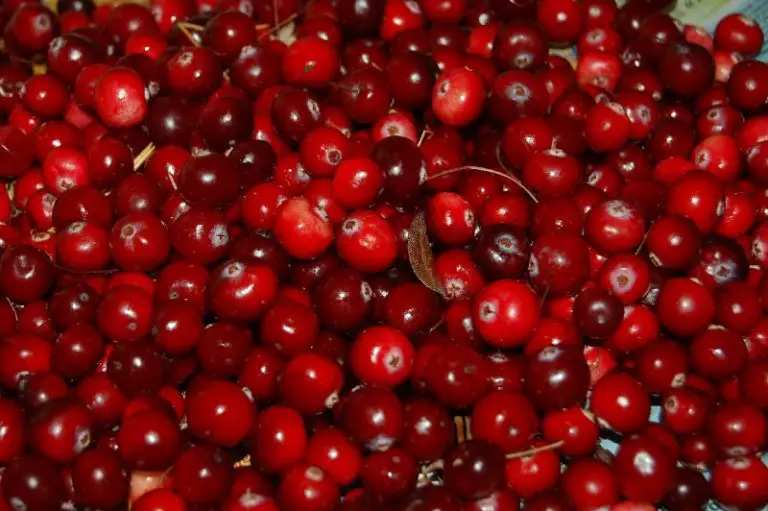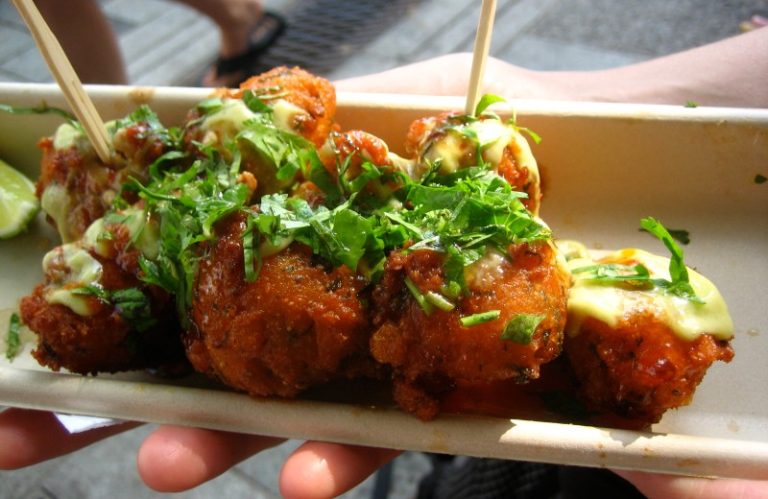The Olive Tree Cookery School
The Olive Tree Cookery School, in the tiny rural hamlet of Nordern, on the A351 road that leads to Corfe Castle in Dorset, was created out of an old pig shed in the cottage garden of Sara Sinaguglia’s parents’ home. She and her Sicilian chef husband, Giuseppe, have redecorated the building in gentle tones of olive green and ivory, with terracotta floors, wooden tables and stools and bright melamine plates and accessories.
The cookery school is spotlessly clean, very bright and uncluttered, surrounded by a really lovely, flowery garden. Giuseppe opens the back door and collects the herbs he needs for the courses, and his own son, Dante, comes in carrying fresh asparagus for the class. It’s like a home away from home, so serene and peaceful.
On the window sills are lots of different jars of Giuseppe’s “Veru Truly Sicilian” brand of preserves and pickles, including red wine jelly, caponata melanzane, pistachios in honey, cured lemon marmalade and orange blossom honey. There are also big metal cannisters containing extra virgin olive oil from Giuseppe’s own region, Agrigento.
So far away from his Mediterranean homeland, and after many years of working his way up the fine dining restaurant trade, Giuseppe has created, with the help of his wife, a very busy and popular cookery school and catering company.
I have booked myself into a seafood course, and I am sitting listening to the introduction of the course with three other students. The seafood classes are kept small for two reasons: firstly so that Giuseppe can focus more effectively on each student’s work and secondly because there is an awful lot of technical work to be done on just one work table.
The menu is enticing: sea bass in a salt crust; sole poached in a coconut sauce with coriander noodles; crostini with crab, cherry tomato, samphire and avocado; lobster and asparagus risotto and scallops sashimi. There are also lots of other additions: the making of a seafood broth for the risotto, a special herby citronette to go with the sea bass, the making of coriander noodles to go in the coconut sauce and a recipe for wild garlic butter.
Firstly, Giuseppe introduces all the various parts of the kitchen: where all the equipment and ingredients are stored and how we are all going to split the jobs between ourselves. One person must slice the vegetables in order to prepare the fish broth, another must get the chilli, garlic and ginger ready for the sashimi, whilst the remaining couple must get the citronette with herbs, the tomatoes, the avocados and the asparagus prepared.
We work our way through the mise en place, while Giuseppe comes round the table, ensuring we understand everything, checking our knife skills and making sure we have everything we need.
This part of Dorset , on one hand, is rich in wonderful ingredients, but on the other hand, Giuseppe explains it can be a challenge to find everything you need within reasonable driving distance. He sources fish from Greenslades fishmonger in Poole and there is also a fisherman who is a father at his daughter’s school, from whom he can order scallops. There are Purbeck farmers’ markets and, according to another student, Christchurch is a very foodie market town.
We are shown a variety of techniques with regards to the preparation of the fish. We have seabass and bream to gut and fillet, scallops to prize open from their shells, trim and slice and we also have crab and lobster to kill. This is the hard part. No matter how much I am willing myself to hold the lobster whose tail is flapping frantically beneath Giuseppe’s hold I really cannot bring myself to do it. Giuseppe discusses the various killing techniques with the class, from freezing, to stabbing or placing directly into boiling water.
After his many years as a professional chef, Giuseppe believes the most humane and immediate form of death is by immersion in rapidly boiling water, and so two giant crabs, one of which is a spider crab, and our lobster friend go to meet their maker in the big aquarium in the sky.
Then we get out the requisite tools to remove every ounce of flesh from the bodies, and the shells are used to make to make a really delicious seafood broth.
There is a break at half time and we eat Giuseppe’s delicious almond biscotti with hot coffee. It really is remarkable how much can be learned in such a small class, it is almost one to one tuition, and I came away with eight big pages of notes. The great advantage of this particular course, in addition, was the other students, all of which were really eager to get involved, lots of questions were asked and we all laughed and chatted continuously.
But in between the banter there was serious work to be done. Giuseppe showed us his pasta making skills, and even I, after making fresh pasta all my life, found his technique very interesting. I learned a great deal also about ensuring that fish is at its freshest and finest and how to ensure that absolutely nothing is wasted.
It was very interesting to note that the sea bass in a salt crust was prepared with egg white in the crust. This kept the fish very moist and soft inside.
Throughout the day Giuseppe taught us about the food of his region and how his mother and grandmother influenced his cooking as he was growing up. It was riveting to listen to his thoughts about the Mafia, and to hear how difficult it is to run a business in Sicily. Many of his peer group left the island to seek their fortune elsewhere, and now, aged 36, when he returns with his young family (his daughter Sofia is 9 and his son Dante is 6) he feels that he and Sara made the right choice to set up home here in Dorset.
When he returns home tripe, pork ribs, fried risotto balls (arancini), fresh fish from day boats, chick pea fitters, cannoli, cassata and ice-creams are his favourites. It seems that despite all the years working for Marco Pierre White at The Criterion in Piccadilly, for Carluccio’s in Market Place and as Head Chef at the Manor House Hotel in Studland Bay, Giuseppe Sinaguglia is still a simple country boy at heart.
Back to the cooking, and we have to assemble all the fruits of our labours on presentation platters. The cold Fiano wine is poured, the table is set and we all celebrate a wonderful day with the clinking of glasses and a delicious lunch, more banter and laughter and the swapping of ideas.
I could not really pick a favourite dish, but the scallop sashimi and the lobster risotto alone were worth the trip. With such wonderful raw ingredients, such leisurely preparations and so much tuition, the odds were in our favour that we would prepare an outstanding meal. The crab crostini, also, are such a brilliant idea, so useful for parties and lunches.
And like all good wives, Sara was there to help with the washing up and the sorting at the end. Giuseppe explained that, as his children were still quite young, he and Sara did not want to set up their own restaurant business, nor do they really want to expand their existing catering business to serving beyond 30 guests. They are very happy keeping things small and personal, but there are many plans for the future.
The Olive Tree Cookery School will continue to offer a wide range of courses, from Italian style summer entertaining, to pizza and Italian breads, fresh pasta, vegetarian cookery, summer preserving, men’s cookery classes, ice-cream making and perfect picnics to name but a few. There are also childrens’ courses, pre-university courses, and chef’s table evenings, where you can watch Giuseppe cook your dinner in front of you and your guests. He is also working on a cookery book, filled with all his Sicilian recipes and food producers all over Sicily will continue to make the jams, jellies and preserves he sells in the school. The family will continue travelling to and from Italy, bringing back new and fresh ideas.
I could not recommend this cookery school more: it offers really excellent value for money, in a glorious setting and total immersion in a cookery course with a tutor who is extremely knowledgeable and experienced, while retaining a relaxed and approachable demeanour in all he does. Bravi Giuseppe e Sara! You have done Dorset very proud indeed.
Contact Details
The Olive Tree Cookery School
The Old Barn
Cat’s Eye Cottage
Norden
Corfe Castle
Dorset BH20 5DT
Telephone: 01929 477260
Website: www.olivetreecookeryschool.com
E-mail: [email protected]



